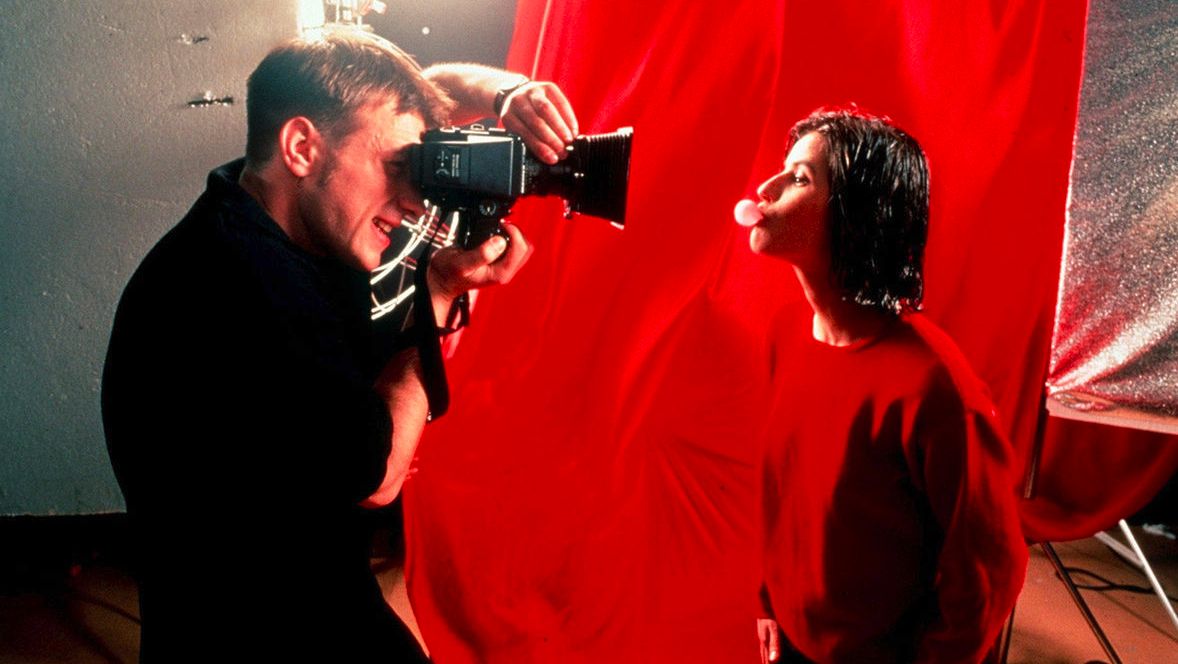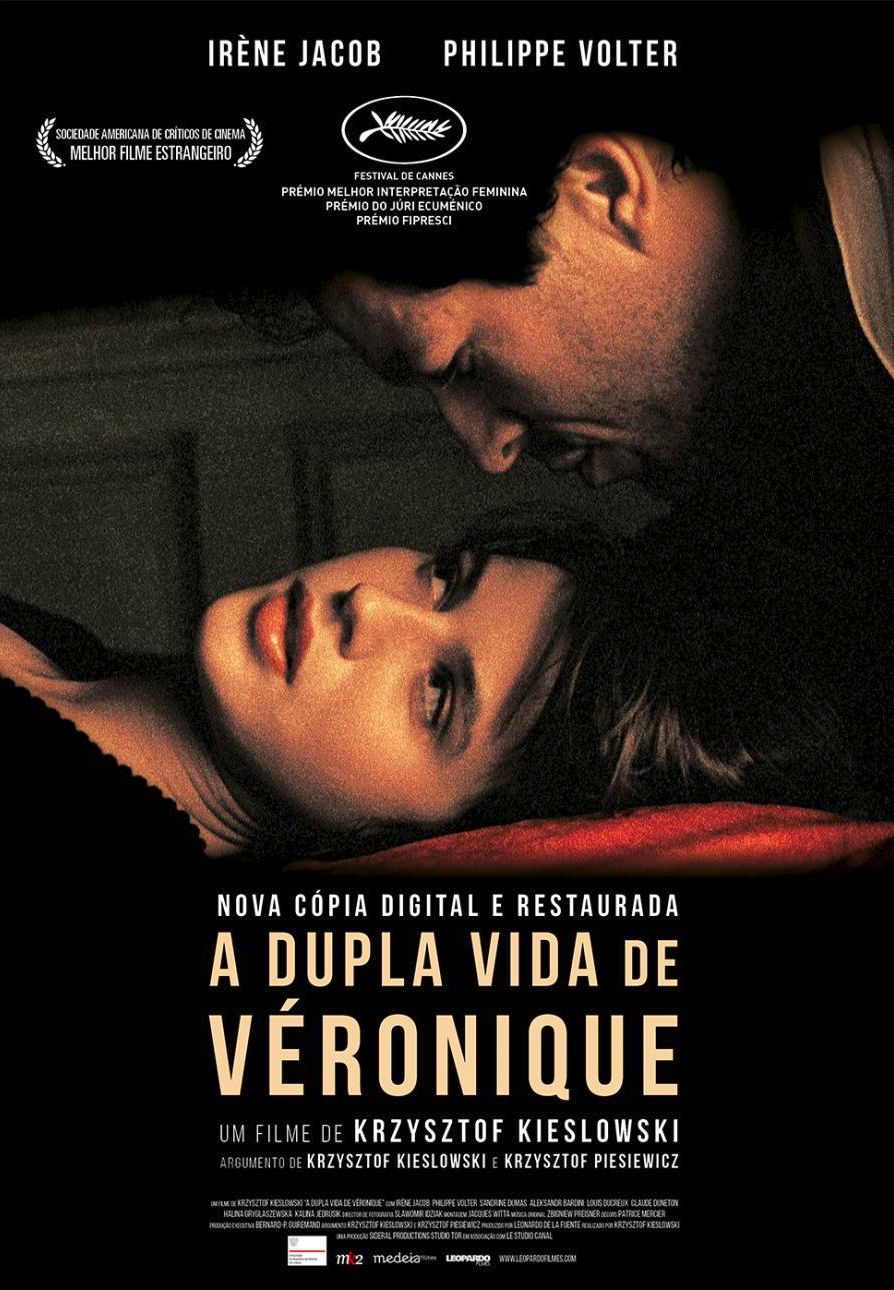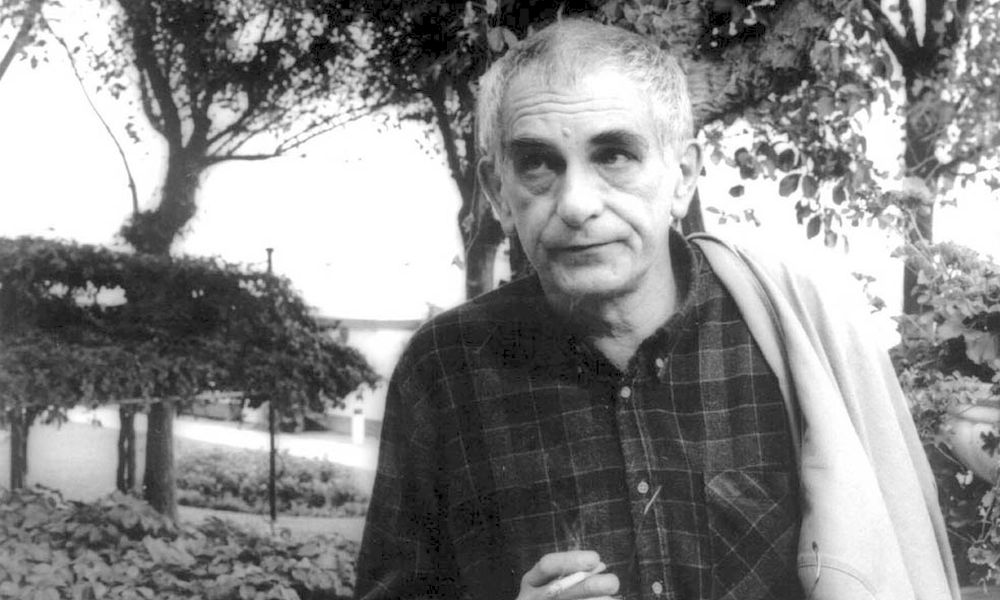"Although Krzysztof Kieslowski began his career as a documentarist, subsequently becoming a leading figure in the pre-Solidarity ferment of Poland’s Cinema of Moral Anxiety, in the 1980s his work took a turn toward the philosophical, then the ethico-metaphysical, that yielded dramatizations of religious and spiritual issues of a seriousness rivalled in recent decades only by the films of Andrei Tarkovsky." - Paul Coates (Schirmer Encyclopedia of Film, 2007)
Krzysztof Kieslowski
Key Production Countries: Poland, France
Key Genres: Drama, Psychological Drama, Romantic Drama, Documentary, Political Drama, Short Film, Fantasy
Key Collaborators: Krzysztof Piesiewicz (Screenwriter), Zbigniew Preisner (Composer), Jacek Petrycki (Cinematographer), Halina Dobrowolska (Production Designer), Ryszard Chutkowski (Producer), Slawomir Idziak (Cinematographer), Lidia Zonn (Editor), Aleksander Bardini (Leading Character Actor), Artur Barcis (Leading Character Actor), Jerzy Stuhr (Character Actor), Marin Karmitz (Producer), Krzysztof Pakulski (Cinematographer)
Key Genres: Drama, Psychological Drama, Romantic Drama, Documentary, Political Drama, Short Film, Fantasy
Key Collaborators: Krzysztof Piesiewicz (Screenwriter), Zbigniew Preisner (Composer), Jacek Petrycki (Cinematographer), Halina Dobrowolska (Production Designer), Ryszard Chutkowski (Producer), Slawomir Idziak (Cinematographer), Lidia Zonn (Editor), Aleksander Bardini (Leading Character Actor), Artur Barcis (Leading Character Actor), Jerzy Stuhr (Character Actor), Marin Karmitz (Producer), Krzysztof Pakulski (Cinematographer)
"Of all European directors of recent decades, Krzysztof Kieslowski is the most obvious legatee of the high seriousness that we associate with Ingmar Bergman and Andrei Tarkovsky. He pushed traditional European art cinema in the face of Hollywood dominance and the burgeoning auteur cinemas from other parts of the world... Dekalog made Kieslowski's name, and provided the material that led to A Short Film About Killing (1987) and A Short Film About Love (1988). In these films Kieslowski began to elaborate a theme of interconnectedness that would be key to his oeuvre. If his narrative reticence and obscure images have generated criticism, they have equally been praised for the thematic ambiguity and density they bring to his work." - Richard Armstrong (The Rough Guide to Film, 2007)
"There is no doubting his feeling for things seen and heard; there is no question but that he is a filmmaker, and one following in the steps of Bresson. But, for me, Kieslowski frequently runs the risk of being precious, mannered, and so cold as to forbid touching." - David Thomson (The New Biographical Dictionary of Film, 2002)

Three Colours: Red (1994)
"It seems that most Eastern European directors of the past 30 years have been rebels of one kind or another, and Kieslowski was certainly no exception... To the Western eye, Kieslowski's films offend less against the system than those of some of his contemporaries. And, although in life he was something of a pessimist, his films do not always reflect that attitude. Their characters are constantly faced with making moral decisions and often find the right endings for their lives." - David Quinlan (Quinlan's Film Directors, 1999)
"Former documentarist Kieslowski's early features were noted for their simple, robust realism, but in his later work, he developed a more ornate, expressionist style, directing attention with painstaking precision to the immediate physical reality of his characters' lives, in order to illuminate an inner world of emotion, thought and premonition." - Geoff Andrew (The Director's Vision, 1999)
"One of a select few filmmakers whose works stand not just as art, but as starting points for rigorous philosophical discussion and debate, Krzysztof Kieslowski started out a prominent voice of Polish cinema before becoming an international film icon… In the years since their release his films have, by and large, all become major staples of international cinema." - Joshua Klein (501 Movie Directors, 2007)
"Through his rather sardonic examinations of the conflict between the state and its citizens, Krzysztof Kieslowski has come to represent the "cinema of moral unrest" in Poland. Politically active in the struggle for a more democratic Poland, Kieslowski expresses many of his ideas obliquely in his features." - Ronald Bergan (Film - Eyewitness Companions, 2006)
"A leading figure in East European cinema of the 70s and 80s. A graduate of the Lodz film school, he turned out his first film in 1969 and first captured international attention with Camera Buff (1979), a satirical critique of political movie censorship in his native land." - The MacMillan International Film Encyclopedia, 1994
"To tell you the truth, in my work, love is always in opposition to the elements. It creates dilemmas. It brings in suffering. We can't live with it, and we can't live without it. You'll rarely find a happy ending in my work." - Krzysztof Kieslowski
Selected Filmography
{{row.titlelong}}
Krzysztof Kieslowski / Favourite Films
Citizen Kane (1941) Orson Welles, The 400 Blows (1959) François Truffaut, Intimate Lighting (1965) Ivan Passer, Ivan's Childhood (1962) Andrei Tarkovsky, Kes (1969) Ken Loach, The Kid (1921) Charles Chaplin, A Man Escaped (1956) Robert Bresson, The Musicians (1960) Kazimierz Karabasz, The Pram (1963) Bo Widerberg, La Strada (1954) Federico Fellini.
Source: Time Out (1995)
Citizen Kane (1941) Orson Welles, The 400 Blows (1959) François Truffaut, Intimate Lighting (1965) Ivan Passer, Ivan's Childhood (1962) Andrei Tarkovsky, Kes (1969) Ken Loach, The Kid (1921) Charles Chaplin, A Man Escaped (1956) Robert Bresson, The Musicians (1960) Kazimierz Karabasz, The Pram (1963) Bo Widerberg, La Strada (1954) Federico Fellini.
Source: Time Out (1995)
Krzysztof Kieslowski / Fan Club
Roger Ebert, Krzysztof Zanussi, Steven Gaydos, Ricardo Luis Alvarez, Kenneth Turan, Geoff Andrew, Atilla Dorsay, Peter Debruge, Tim Lucas, Kaisa Hiltunen, J. Robert Parks, Adam Jahnke.
Roger Ebert, Krzysztof Zanussi, Steven Gaydos, Ricardo Luis Alvarez, Kenneth Turan, Geoff Andrew, Atilla Dorsay, Peter Debruge, Tim Lucas, Kaisa Hiltunen, J. Robert Parks, Adam Jahnke.
"Fan Club"
These film critics/filmmakers have, on multiple occasions, selected this director’s work within film ballots/lists that they have submitted.
These film critics/filmmakers have, on multiple occasions, selected this director’s work within film ballots/lists that they have submitted.


